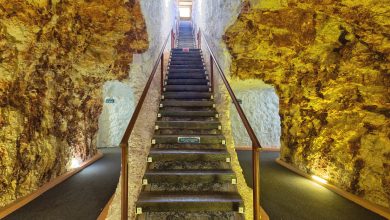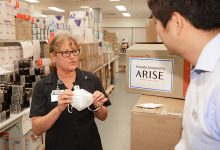
Wage rise not the biggest threat to ‘mum and dad’ operators
Accommodation industry leaders react to Fair Work Commission decision to give more than 2.5 million Australians a pay rise of 5.75 percent from July 1
The increase in Australia’s minimum wage will have nowhere near as big an effect on the ‘mum and dad’ operators like those in the management rights sector as the proposed government moves to cap rents.
That’s the opinion of Trevor Rawnsley, the CEO of ARAMA – the Australian Resident Accommodation Managers Association, the voice of the Management Rights sector, representing close to 4000 management rights schemes nationally both short stay and residential.
More than 2.5 million Australians will receive a pay rise of 5.75 percent from July 1 after the Fair Work Commission announced its decision for those on minimum and award wages.
The wage rise announcement came just days after worrying inflation figures showed annual Consumer Price Index growth at 6.8 percent. Even with the wage rise to $859.32 for a 38-hour week, the nation’s lowest-paid employees will still lag behind the runaway cost of living.
Our latest AccomNews print issue is available now. Read it HERE
The wage rise will go to about a quarter of all Australian employees, with many involved in hospitality, tourism, and accommodation.

Mr Rawnsley said while most resident managers in the accommodation sector would raise tariffs slightly to absorb the additional running costs of their businesses brought on by the wage rise, the real danger to the long-term rental sector of management rights was government plans to cap rent increases.
“The only real risk a property runs by raising tariffs is that it might make them a little uncompetitive,” Mr Rawnsley said.
“But if pressed to meet the additional wages bill some managers will likely reduce hours for workers or try to find ways to make that work more productive.
“The wage rise will not be a catastrophic change.
“Increased labour costs won’t affect our members who are running long-term residential properties in the same way it will affect the tourism sector. But the proposals to limit the rent that a landlord can charge will make life tough.
“Inflation is seeing prices going up across the board. Some politicians are saying everything will continue to go up except the rent you can charge. That makes it hard if you’ve invested in property or an accommodation business and you’re relying on that rent to pay a mortgage which is costing you more every month with interest rate rises.
“These artificial caps on rents are destructive. If you are going to put caps on price rises why not put a cap on petrol, or on taxes? Why not put a cap on insurance? Or why not freeze wages?”
Mr Rawnsley said raising wages might even benefit the tourism sector in some ways by attracting more workers in places where they are scarce. But he said increased labour costs were another charge for resident managers coming on top of interest rate and electricity hikes.

Michael Johnson, CEO of Tourism Accommodation Australia and head of Australia’s Accommodation Association said that given the current cost-of-living pressures, “the rise in the minimum wage is totally understandable”.
“It is hard to argue against an increase for those on low incomes who are struggling to make ends meet,” Mr Johnson said.
“But we need to keep in mind that hotels are also impacted by the increasing cost of goods and services. Wages make up around 30 percent of operating costs and this rise will definitely have flow-on effects.”
Chris Fozard, the Operations Manager of theBudget Motel chain said that the pay rise, while helping many people cope with soaring living costs, would unlikely make a huge impact among his group’s 100 members.

“Many of our members are the sort of motels that are pretty much manageable by husband and wife teams,” he said.
“So they are not dealing with a wages bill for 100 people like the big properties.”
And Allan Hsiao, who owns a motel at Merimbula on the NSW South Coast, said the pay rise would not significantly affect operators such as himself.
“It may have a small impact for medium operators but it won’t wreck the bank,” he said.
“For big operators with a lot of staff, it becomes different but for most motels, the biggest cost they face is the utilities.”
Grantlee Kieza OAM has won three Queensland Media Awards, two Australian Sports Commission Awards and has been a finalist for the Walkley and News Awards and for the Harry Gordon Award for Australian sports journalist of the year. In 2019 he received the Medal of the Order of Australia for his writing. You can find more of his work in our AccomNews & Resort News print magazines.
He has written 22 acclaimed books, including bestsellers Hudson Fysh, The Kelly Hunters, Lawson, Banks, Macquarie, Banjo, Mrs Kelly, Monash, Sons of the Southern Cross and Bert Hinkler.






